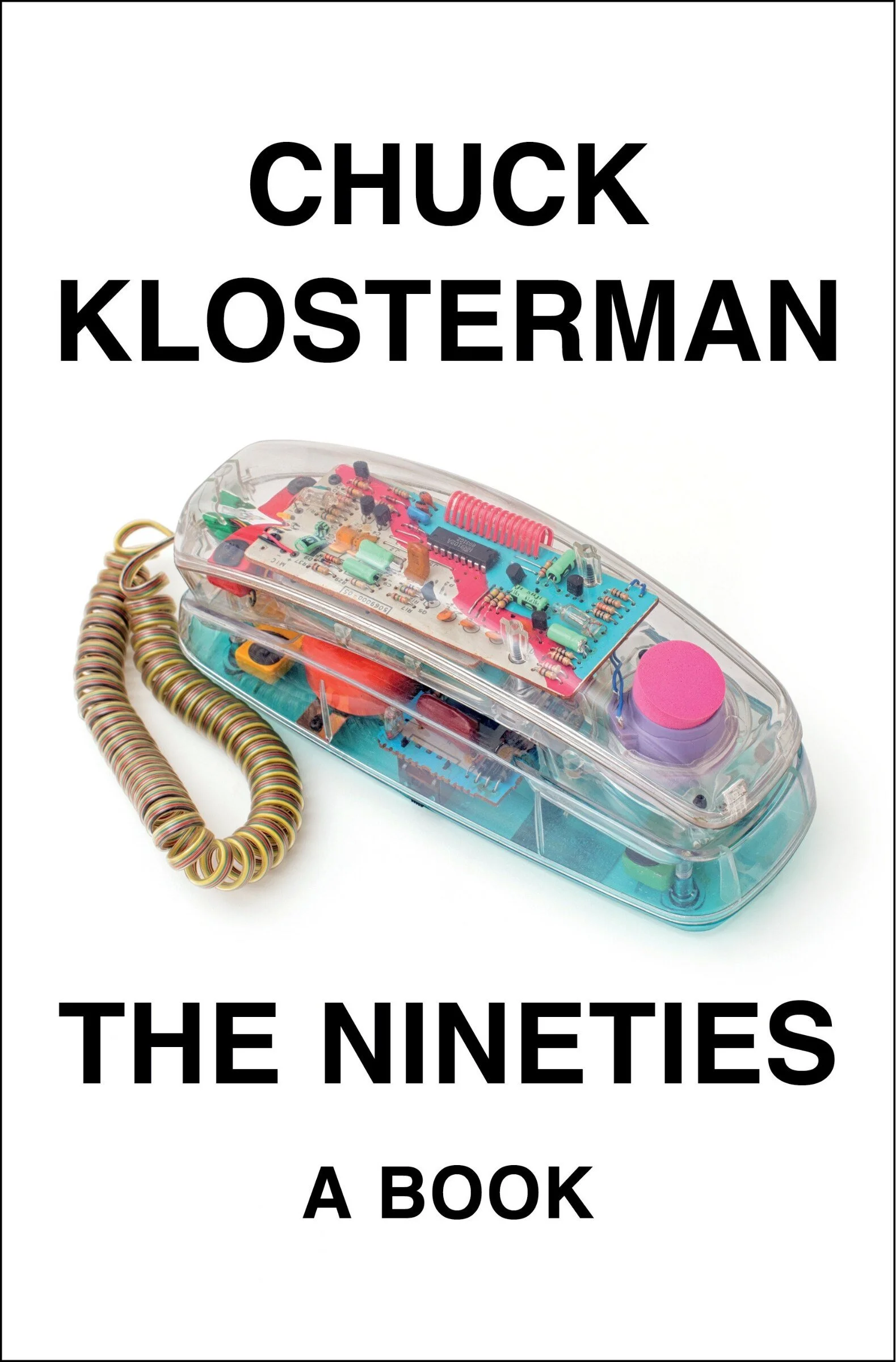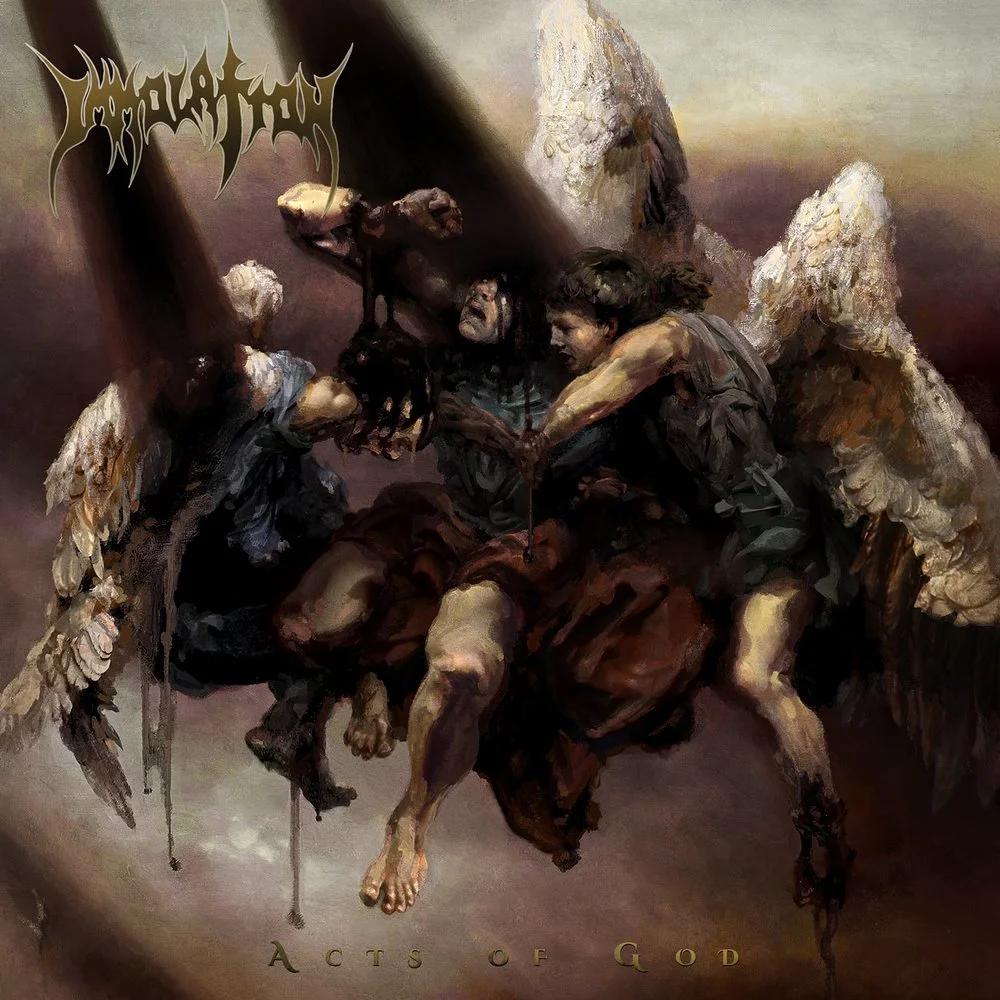Book Review : Chuck Klosterman - The Nineties (2022)
There's always a disconnect between the world we seem to remember and the world that actually was. What's complicated about the 1990s is that the central illusion is the memory itself. (p.1)
Reading is a heavily romanticized activity in general. Among casuals, it is inherently perceived to be the ultimate way to engage with information or entertainment. That a great book is SUCH a better trip than any movie or television series will ever be. In some cases it’s true, but the gap is slowly closing with years with the help of technology and the exodus of talent towards newer mediums. It’s been a couple years since I experienced one of these highs, but I definitely had one reading Chuck Klosterman’s new book The Nineties.
I don’t know if it made me feel better about myself yet. But I do feel more informed about who I am, where I’m from and what the fuck’s wrong with the world. So there’s that.
On the surface, The Nineties is very much what it claims to be: a books that explores a series of political and cultural occurrences that dictated what was deemed (and what is still deemed) important about the last decade of the twentieth century. Nevermind, the O.J Simpson saga, Oprah Winfrey, Alan Greenspan, Bill Clinton’s presidency, etc. It is not really revisionist or nostalgic, although you could say revisiting the nineties while trying to emulate its thinking is an exercise in nostalgia in itself. But The Nineties isn’t JUST that.
The full spectrum of social and psychological consequences that accompanied the advent of the internet is too profound to explain or understand (then, now or ever). It exponentially expanded the parameters of external existence while decreasing the material size of interior existence. It allowed any person to simultaneously possess two competing identities - one actual and one virtual. (p.132)
The Last Decade
Talking about the nineties is complicated for two reasons: 1) Some of its important moments still have a colossal impact on our daily lives in 2022 and 2) Half of it happened in a world that doesn’t exist anymore, so it’s hard for certain people to understand how far it is from how we live our life now. Chuck Klosterman manages this conundrum by taking a step back in certain essays and explaining things the we way still collectively remember them. Some of the chapters consist in Klosterman narrating official history.
His essay CTRL + ALT + DELETE isn’t going to teach you much or provide a counterintuitive perspective on how the internet was created and what it meant then. Same for the essay I Feel the Pain of Everyone, Then I Feel Nothing about the presidency of Bill Clinton. There isn’t much to it that you don’t already know if you’re a reasonably well-informed person in the internet age and there isn’t much perspective you can gain on it because of how painstakingly scrutinized these events have already been.
But Klosterman understands this.
One of the things he’s getting great at with books is not making obvious arguments and consciously constructing his essay collections as superstructures for meta-arguments he's trying to make. The Nineties is about the nineties, but it’s also about their connection to the world we live today and the problems they created. The major change in our relationship to media is one of the central theme of The Nineties. Mostly the flattening of our understanding of human nature, from Seinfeld to the events of Columbine.
Now, Chuck Klosterman didn’t say this explicitly, so it could be my manic brain looking for patterns where there isn’t any, but there’s a line to be traced from his essay The Movie Was About A Movie that is partly about Seinfeld and nineties television to A Two-Dimensional Fourth Dimension, which is (mostly) about the live coverage of tragedies. The overarching point basically is that our relationship to entertainment became increasingly problematic in the nineties and while it was not meant to be purposeful, we kind of tweaked it to be.
It’s something that happened organically, born out of an explosion of entertainment options in the late eighties and early nineties of which cable television was the climax. It changed our way to interact with everything because suddenly everybody was vying for our attention and the way to seduce us into becoming an audience was through emotional storytelling. No one started to care what the fuck was true and what the fuck wasn’t for as long as there was a good story to tell. Someone to cheer for and someone to hate.
The default media experience thrives on emotional manipulation. This is how we started caring about everything at all time even if it didn’t concern us or turned us into low-rent tyrants. I’ve been struggling with this for years now and I found enormous comfort in reading the metacultural history of how we arrived there.
Understanding the present cannot be achieved until the present has become the past. (p.17)
The part that is existential
Another layer of The Nineties that spoke to me on a more personal level was Chuck Klosterman’s overview of Generation X. I’m 39 years old, so technically an old millennial but I hadn’t realized how important young Xers (i.e. kids my sister’s age) were to my growing psyche and understanding of the world until reading the introduction and essay Fighting the Battle of Who Could Care Less. When you’re young in isolated placed, you always look up to older kids and I did. I just didnt’ understand how much I still do today.
Apathy towards issues I can’t control and irrational investment in ideas that are guaranteed not to make money is pretty much why this site exists in the first place. When Klosterman discussed the film Reality Bites (which I haven’t seen), he quotes Ethan Hawke’s character saying: “I am not under any orders to make the world a better place” as the de facto philosophy of GenXers, I thought to myself: wow, what a cool thing to say! Contributing to progress should be a choice, but never an imperative.
I’m aware this might make me sound like a nihilistic manchild who decided to retreat his intellectual cave instead of engaging with the world, but I’m at peace with that at some point in my life. This is what I do. This is who I am. I don’t have to save the world. I’m not even under any orders to make it a better place, but I like to think Dead End Follies makes it a more engaging one.
*
Obviously, you should read The Nineties. It is perhaps Chuck Klosterman’s least insular and most engaging book along with I Wear The Black Hat : Grappling With Villains (Real and Imagined). It’s a great guide for understanding the nineties as they truly were and an even greater guide to understand what part they had to play in how we’re living now. Although it features some of the most un-Klosterman writing I’ve seen to date, the overarching point makes it perhaps the most Klosterman thing he’s written to date.






